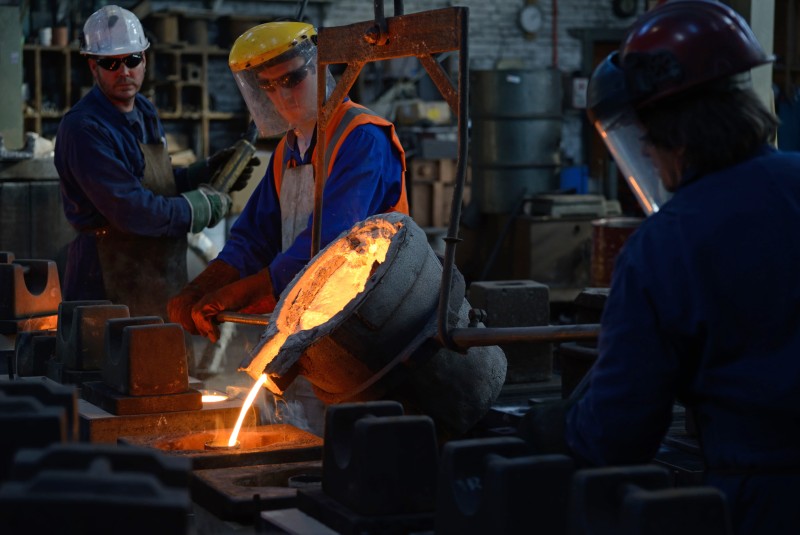Digital Transformation and Sustainability in the Aluminum Casting Industry: Trends Shaping the Future

Dear readers and industry professionals, today we will explore the topics of digital transformation and sustainability in the aluminum casting industry in depth. These two trends are shaping the future of our industry and enhancing our competitiveness.
Table of Contents
- Industry 4.0 and Aluminum Casting
- Sustainable Aluminum Production
- Digital Twin Technology
- Artificial Intelligence and Machine Learning
- Energy Efficiency
- Recycling and Circular Economy
- Conclusion
Industry 4.0 and Aluminum Casting
Industry 4.0 is transforming the aluminum casting sector from the ground up. Smart factories, the Internet of Things (IoT), and big data analytics are optimizing our production processes and increasing efficiency.
- Smart Sensors: Sensors placed in casting molds improve quality control by collecting real-time data.
- Automation: Robotic systems enhance workplace safety by taking over hazardous and repetitive tasks.
- Data Analytics: Analyzing production data helps predict errors and improve processes.
Sustainable Aluminum Production
Sustainability has become an indispensable part of the modern aluminum casting industry. Eco-friendly production methods protect our planet while providing cost advantages.
- Low-Carbon Aluminum: Aluminum produced with renewable energy sources reduces the carbon footprint.
- Water Conservation: Advanced purification technologies minimize water consumption.
- Waste Management: Reuse and recycling of by-products increase resource efficiency.
Digital Twin Technology
Digital twin technology allows for the virtual modeling of aluminum casting processes. With this technology:
- Production lines can be optimized
- Potential issues can be detected in advance
- New product development processes are accelerated
Artificial Intelligence and Machine Learning
Artificial intelligence and machine learning algorithms are revolutionizing the aluminum casting industry:
- Quality Control: Image processing technologies automatically detect defective products.
- Predictive Maintenance: Machine failures are predicted in advance, minimizing unplanned downtimes.
- Optimization: Production parameters are continuously optimized, reducing waste rates.
Energy Efficiency
Energy efficiency is critical for both environmental sustainability and cost optimization:
- Smart Energy Management: IoT devices monitor and optimize energy consumption in real time.
- Heat Recovery: Heat generated during casting processes is utilized in other production stages.
- LED Lighting: Energy-efficient lighting systems reduce electricity consumption.
Recycling and Circular Economy
The ability to recycle aluminum infinitely allows for the implementation of circular economy models:
- Scrap Aluminum Usage: Using recycled aluminum can reduce energy consumption by up to 95%.
- Closed Loop Systems: Production waste is used as raw material for new products.
- Eco-Design: Products are designed to be easily recyclable at the end of their life cycle.
Conclusion
The digital transformation and sustainability efforts in the aluminum casting industry are making our industry more efficient, eco-friendly, and competitive. Companies that closely follow and implement these trends will be the leaders of the future.
As Mertcan Metal Aluminum, we closely monitor these innovations and integrate them into our production processes. We continually strive to provide our customers with the highest quality, sustainable, and innovative solutions.
Would you like to benefit from these innovative approaches in your aluminum casting projects? Contact us now, and our expert team will be happy to offer you tailored solutions.
We look forward to progressing with you on the journey of digital transformation and sustainability in the aluminum casting industry. Let’s shape the future together!